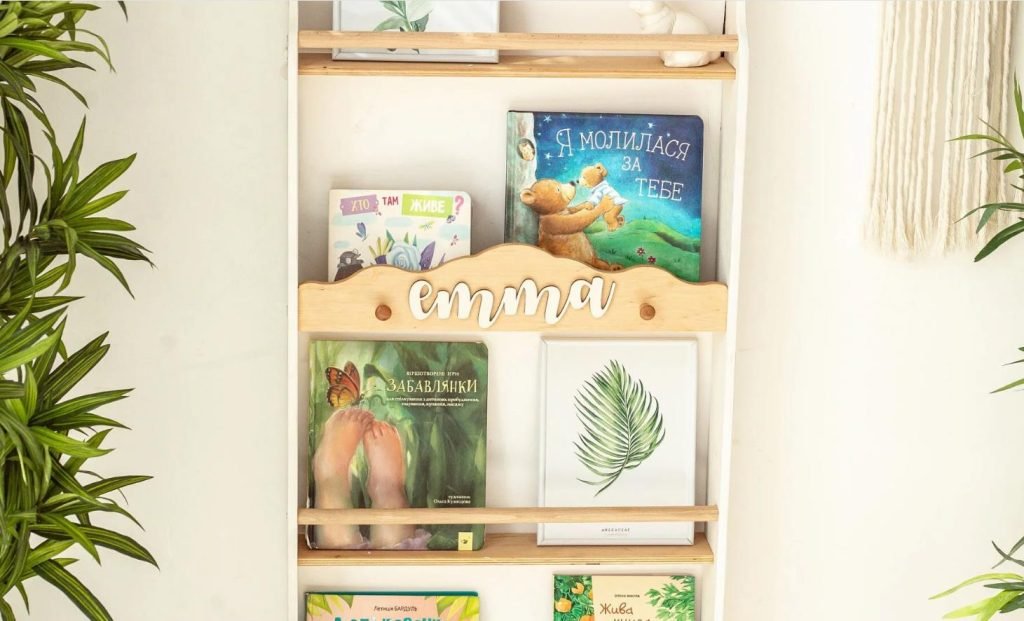The Montessori bookcase, with its open access to developmentally appropriate materials, is a keystone of the Montessori classroom. Unlike traditional education models where activities are kept out of reach, this specially designed shelving invites children to freely explore books and learning tools. This freedom provides profound psychological benefits – by empowering children to direct their education, it sparks deep self-motivation, concentration, and independence.
As they achieve success through self-chosen challenges, kids build lasting confidence and grit. This article explores how accessible design promotes ownership and responsibility over learning, cultivating children’s potential to blossom as capable, lifelong learners.
Table of Contents
The Importance of Accessibility
A hallmark of the Montessori method is allowing children free access to developmentally appropriate materials. This encourages independent exploration and learning driven by the child’s interests.
A low, open bookcase plays a pivotal role in promoting this access. With books and activities readily available without the need to ask for help, kids gain a sense of independence and autonomy. This fuels their innate self-motivation to learn.
- Easy visibility of materials sparks curiosity and draws children to interact with them.
- Independence in accessing activities offers control and choice, empowering kids.
- Open access provides opportunities to take the initiative and responsibility for their learning.
Key Psychological Benefits
Feeling Ownership Over Their Learning
When children can freely access a range of books and learning tools, they gain a greater sense of ownership over their education. This cultivates intrinsic motivation to engage with the materials.
- Choosing activities based on their interests makes learning more meaningful to them. This intrinsic drive propels them to initiate learning independently.
- As they select, explore, and return materials on their own, they gain a sense of responsibility for the order and use of resources. This makes them feel more invested in caring for the classroom.
Promoting Concentration and Focus
The process of selecting an activity prepares children to engage with focused attention and concentration. This ability strengthens as they initiate purposeful work repeatedly.
- Scanning materials and deciding what to use exercises decision-making and focus.
- Carrying chosen items to their workspace helps them transition into a concentrated mindset.
- Going through this process regularly builds their capacity to self-direct attention and energy.
Building Confidence and Resilience
Being able to access activities freely gives children more opportunities to challenge themselves. Overcoming difficulties and achieving success independently breeds confidence and resilience.
- Choosing slightly difficult resources on their own allows them to test their abilities safely.
- Completing chosen activities successfully without assistance empowers them to tackle greater challenges next time.
- This fuels a positive loop of trying, persevering, and ultimately conquering difficulties.
Key Factors in Maximizing Benefits
While an accessible bookcase offers rich potential, certain factors amplify its positive impact. Careful attention to these elements helps create the intended Montessori experience.
Catering to Developmental Needs
Curating age-appropriate books and activities tailored to children’s developmental trajectories is paramount. This ensures genuine engagement that stimulates growth. Include a progression of books matched to evolving reading levels. Rotate materials to align with emerging cognitive capacities over time. Observe kid’s usage patterns and adjust contents accordingly.
Promoting Order and Care
A bookcase works best when children can easily survey contents and return items systematically. This fosters responsibility for maintaining order.
- Use visible organizers like baskets, dividers, and labels so children re-shelve appropriately.
- Have communal discussions about keeping things orderly.
- Lead by example in caring for classroom materials.
Allowing Full Access
The benefits of independence necessitate that all kids can comfortably reach content without restrictions. This enables genuine self-driven exploration.
- Shelves should be low enough for easy visibility and reach.
- Most materials should be handleable for children themselves.
- Remove barriers that hamper access, like closed cabinets or high shelves.
Seeing It In Action
Observing children during their self-directed interactions with the bookcase truly highlights the multifaceted benefits of play. For example, you may witness a child scanning the math shelf intently before gently removing a spindle box. He carries it carefully to his mat where he becomes engrossed in the focused activity for the next 15 minutes.
Later, a classmate eagerly returns to peruse the nature objects in the science basket, having cataloged insect samples earlier that morning. Her sense of responsibility and ownership is apparent as she meticulously reorganizes the collection so others can enjoy the discovery too. These brief vignettes showcase just a fraction of the curiosity, concentration, confidence, and conscientiousness organically fostered through independent engagement with the accessible environment.
Finding the Balance
While open access is key, some boundaries create needed structure. Determine what items require oversight, and handle those separately to allow full freedom where developmentally appropriate.
Closing Thoughts
Ultimately, the Montessori bookcase represents a compelling shift. Rather than viewing young children as incapable learners requiring heavy direction, it offers a freedom that reveals their profound capacity for self-driven education. This catalyzes a blossoming of independence, confidence, responsibility, and love of learning with impacts that ripple across childhood and beyond.
